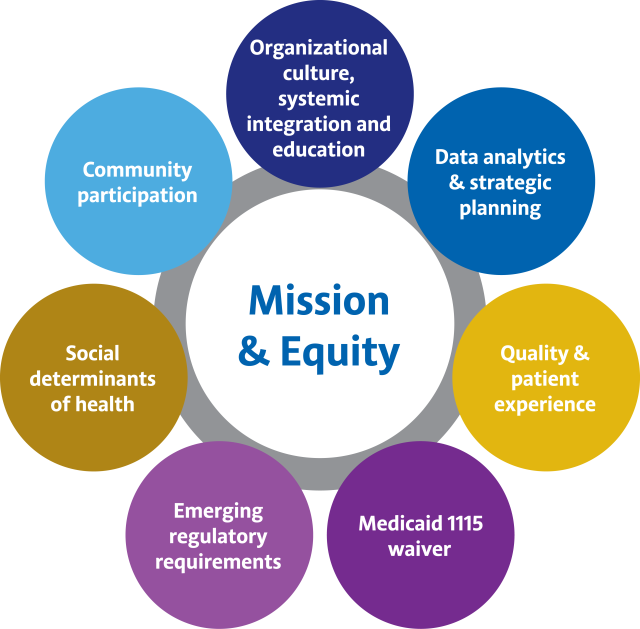Commitment to Fair and Just Health Care
Catholic Health defines health equity using the Centers for Disease Control and Prevention’s (CDC) definition: health equity is the state in which everyone has a fair and just opportunity to attain their highest level of health. Catholic Health also ascribes to the Centers for Medicare & Medicaid Services (CMS) advancement of health equity actions, including:
-
Identify health disparities.
-
Define specific and actionable goals for addressing any disparities identified.
-
Prioritize populations and communities that are historically underserved.
-
Establish and implement their organization’s health equity strategy.
-
Determine what tools and resources their organization needs to implement its strategy.
-
Monitor and evaluate progress in addressing health disparities.


